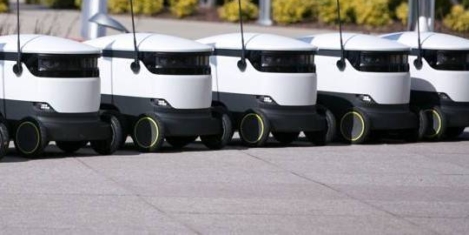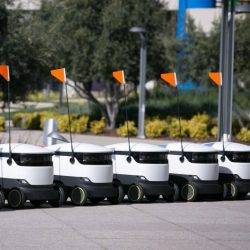To provide the best experiences, we use technologies like cookies to store and/or access device information. Consenting to these technologies will allow us to process data such as browsing behaviour or unique IDs on this site. Not consenting or withdrawing consent, may adversely affect certain features and functions.
The technical storage or access is strictly necessary for the legitimate purpose of enabling the use of a specific service explicitly requested by the subscriber or user, or for the sole purpose of carrying out the transmission of a communication over an electronic communications network.
The technical storage or access is necessary for the legitimate purpose of storing preferences that are not requested by the subscriber or user.
The technical storage or access that is used exclusively for statistical purposes.
The technical storage or access that is used exclusively for anonymous statistical purposes. Without a subpoena, voluntary compliance on the part of your Internet Service Provider, or additional records from a third party, information stored or retrieved for this purpose alone cannot usually be used to identify you.
The technical storage or access is required to create user profiles to send advertising, or to track the user on a website or across several websites for similar marketing purposes.
 Why telling an adult they are a hard worker can backfire
Why telling an adult they are a hard worker can backfire











 There have already been warnings from workplace experts that the legal profession isn’t one to choose for those starting out on their careers as it’s ripe for automation, and a new survey claims these changes are happening fast. According to a survey of over a 100 law firms by CBRE, nearly half (48 percent) are already utilising Artificial Intelligence (AI) and a further 41 percent have imminent plans to do so. Of the firms already employing AI, 63 percent of firms are using it for legal document generation and review, and the same proportion for e-discovery. Due diligence (47 percent) and research (42 percent) were also common applications, along with compliance and administrative legal support (each 32 percent). The use of AI will affect employment levels, with the greatest impact predicted at the junior and support levels, where nearly half (45 percent) of firms believing that there will be a reduction in headcount. In contrast, only 7 percent of firms believe that senior headcount levels will be reduced.
There have already been warnings from workplace experts that the legal profession isn’t one to choose for those starting out on their careers as it’s ripe for automation, and a new survey claims these changes are happening fast. According to a survey of over a 100 law firms by CBRE, nearly half (48 percent) are already utilising Artificial Intelligence (AI) and a further 41 percent have imminent plans to do so. Of the firms already employing AI, 63 percent of firms are using it for legal document generation and review, and the same proportion for e-discovery. Due diligence (47 percent) and research (42 percent) were also common applications, along with compliance and administrative legal support (each 32 percent). The use of AI will affect employment levels, with the greatest impact predicted at the junior and support levels, where nearly half (45 percent) of firms believing that there will be a reduction in headcount. In contrast, only 7 percent of firms believe that senior headcount levels will be reduced.


 Robots will not as feared steal people’s jobs and will eventually improve productivity, but they will undercut workers’ contribution sufficiently to depress their wages. According to the third report in Barclays Impact Series, titled
Robots will not as feared steal people’s jobs and will eventually improve productivity, but they will undercut workers’ contribution sufficiently to depress their wages. According to the third report in Barclays Impact Series, titled 















May 16, 2018
A 21st Century take on the idea of the time capsule that tells us something about the way we work
by Freddie Steele • Comment
(more…)